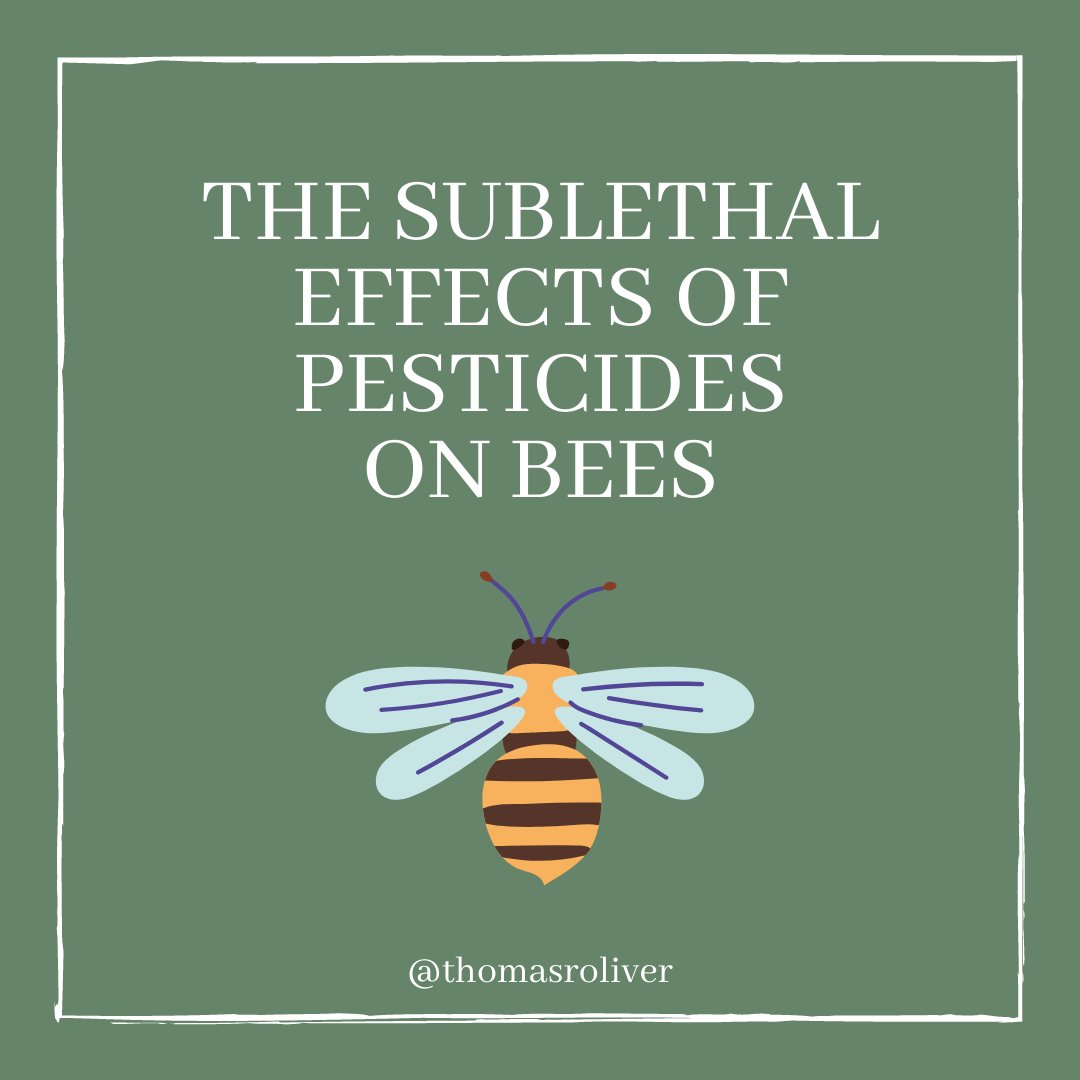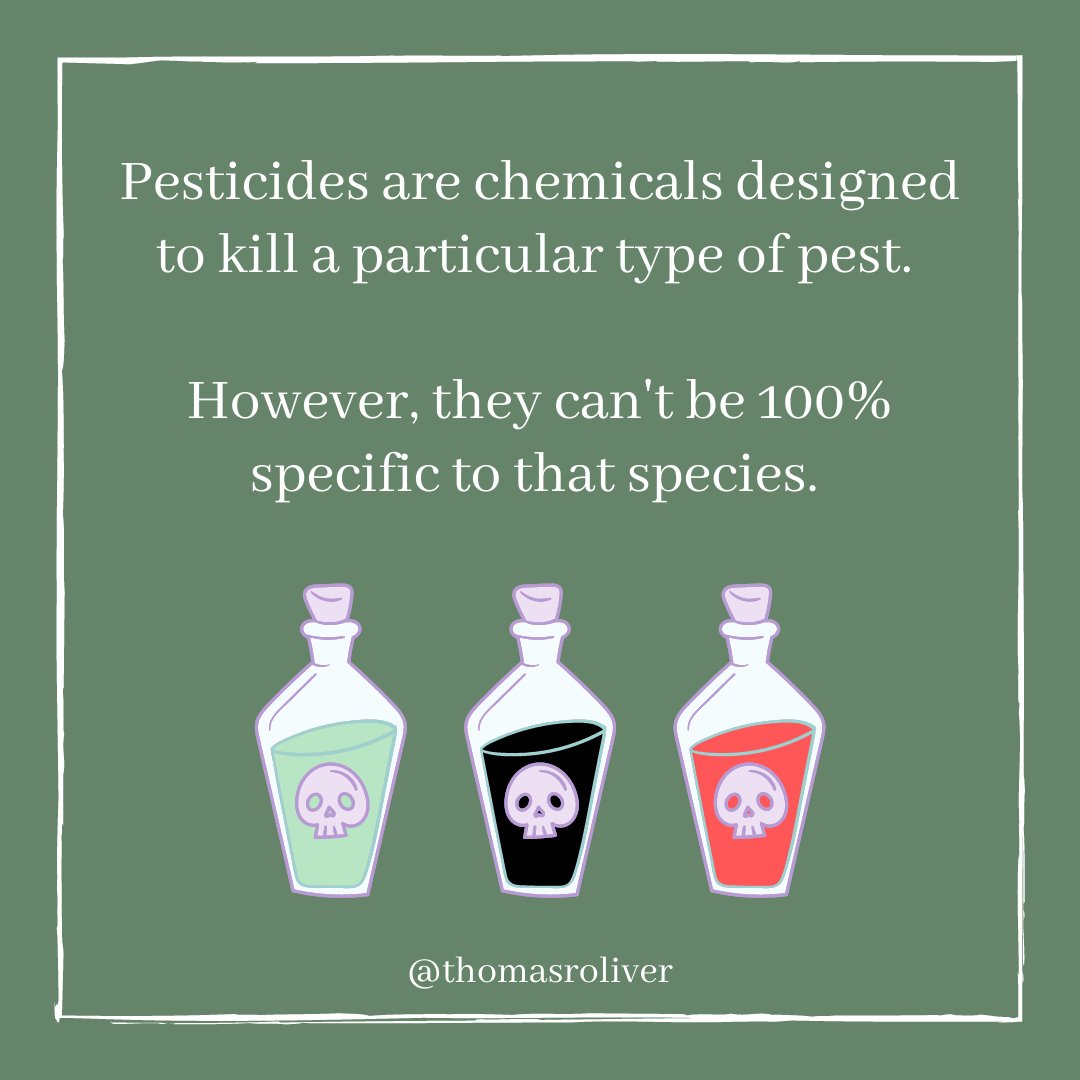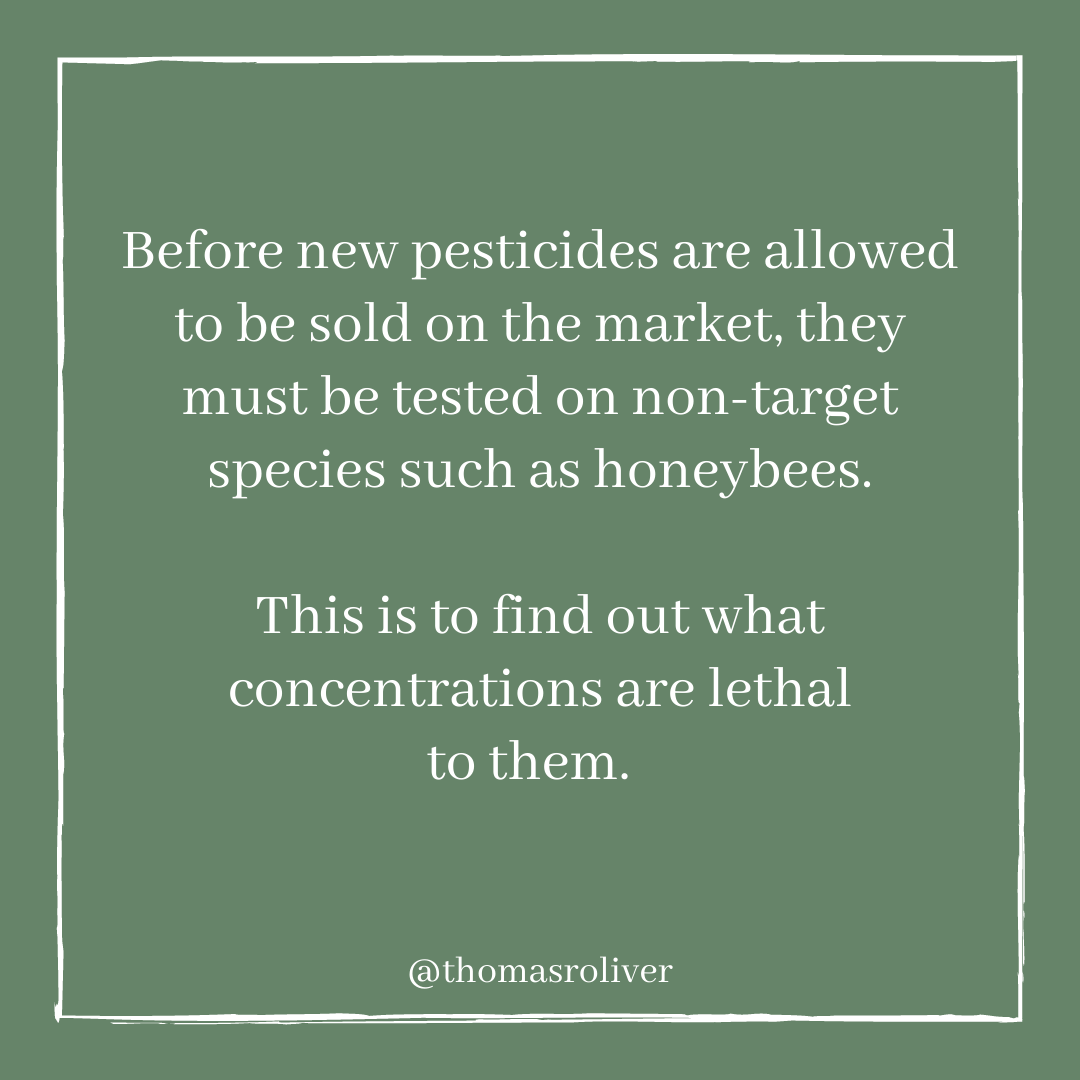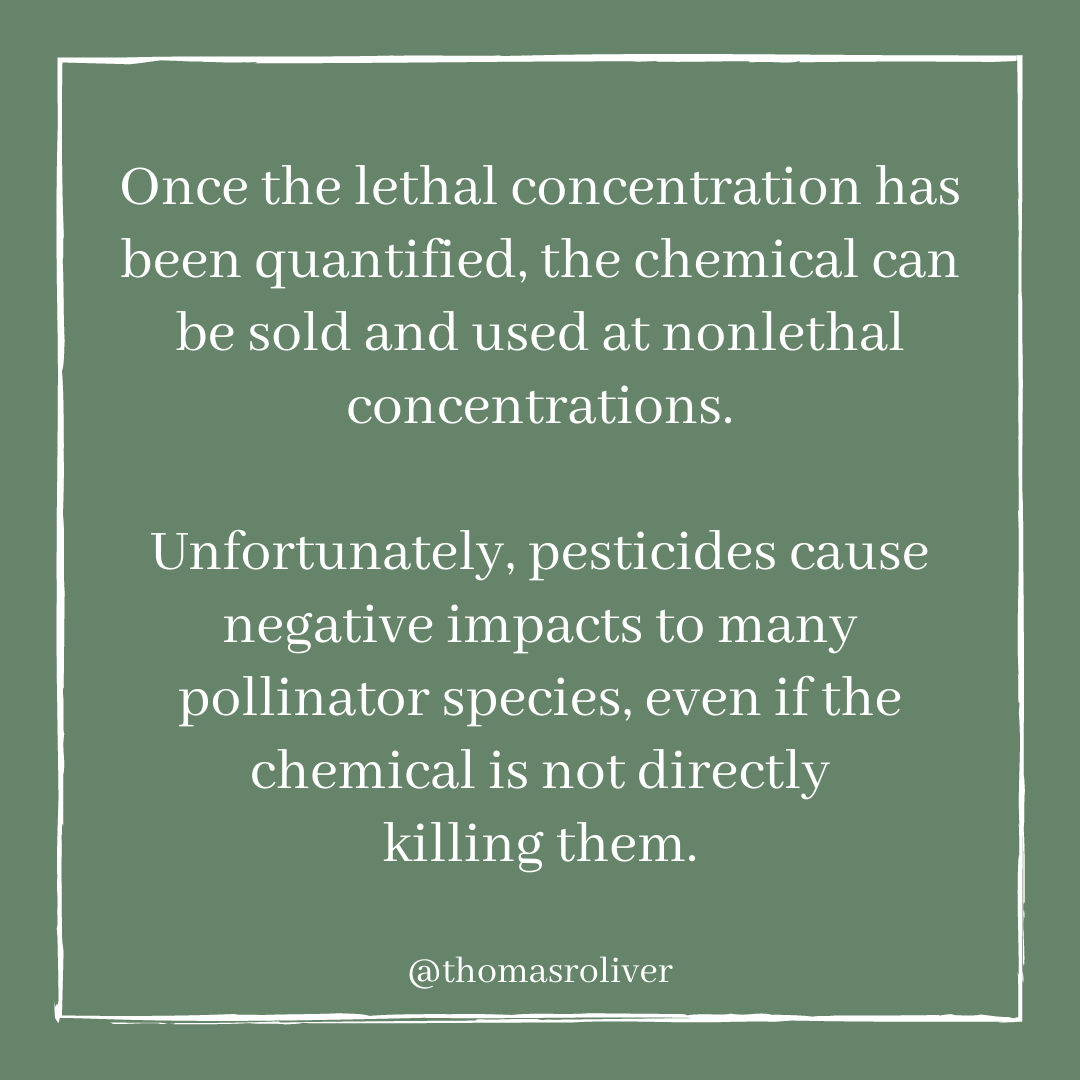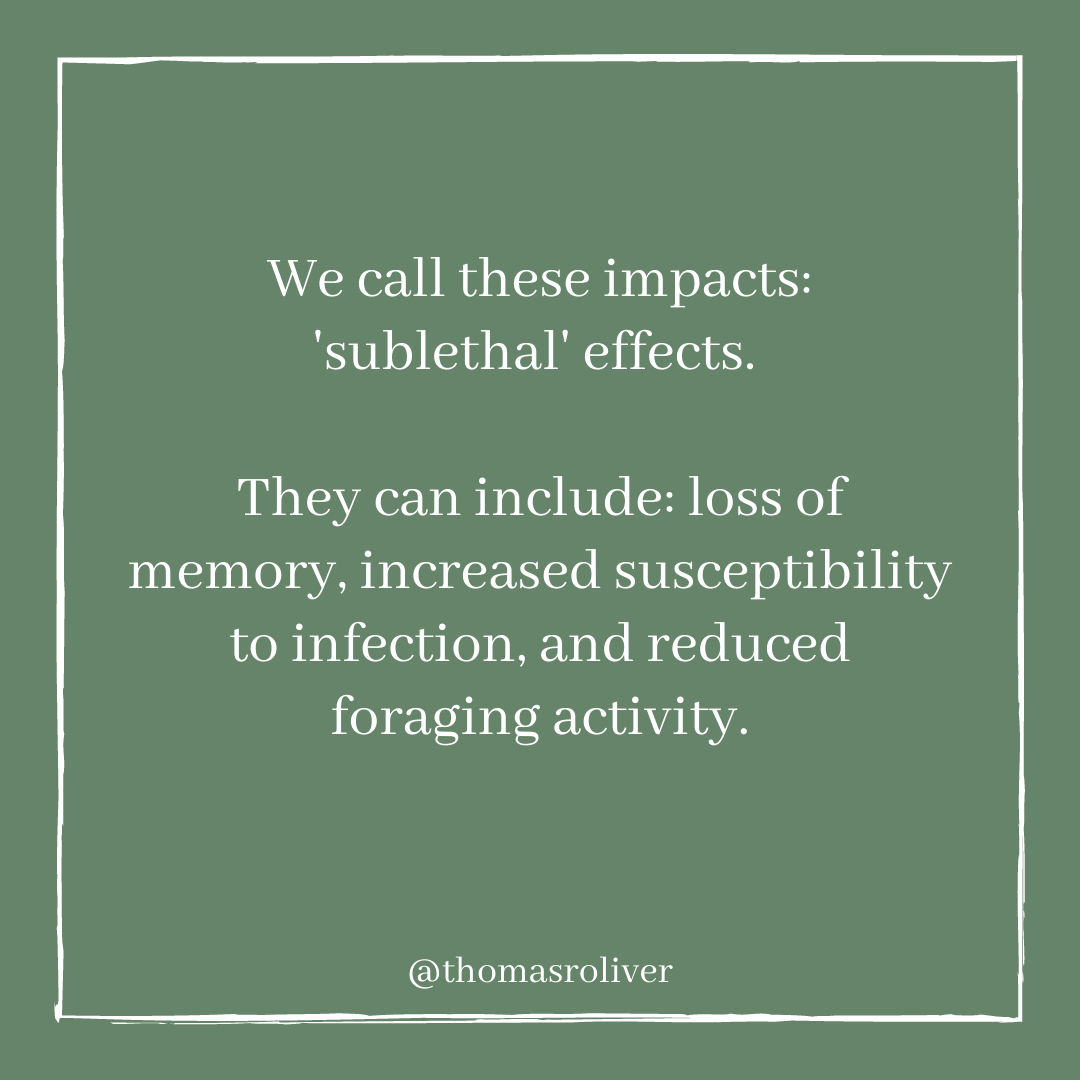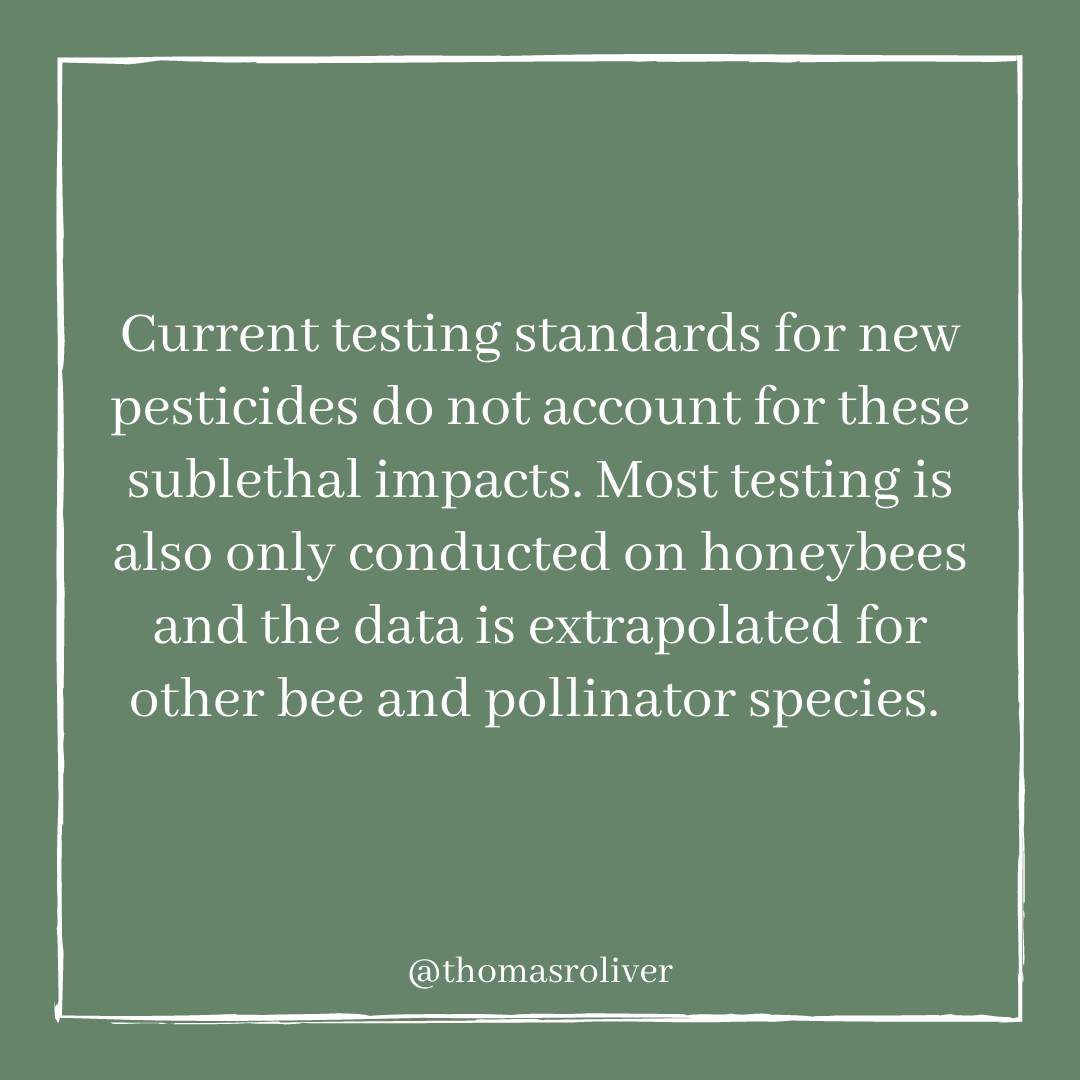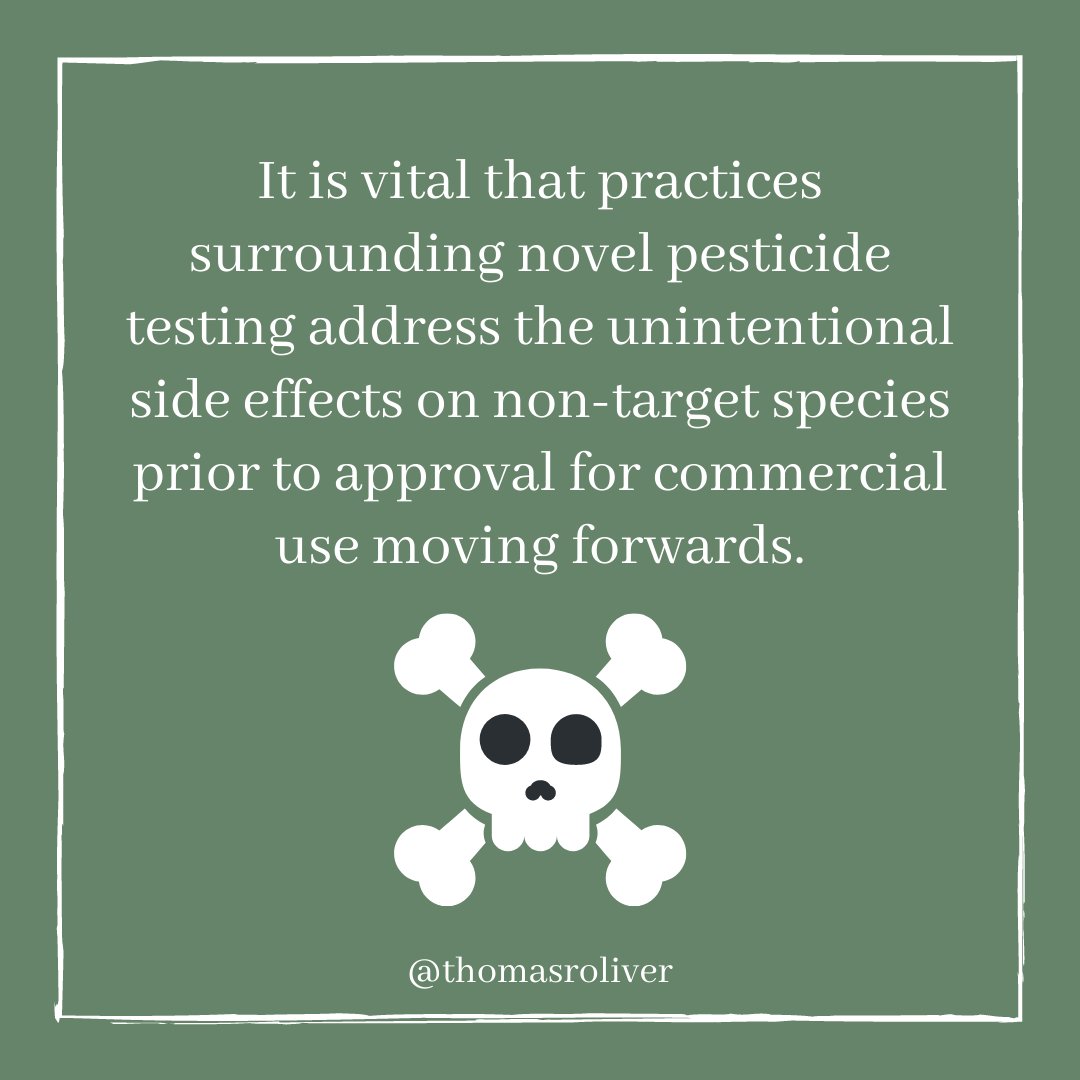Pesticides are chemicals designed to kill a particular type of pest. However, they can't be 100% specific to that species.
Before new pesticides are allowed to be sold on the market, they must be tested on non-target species such as honeybees.
This is to find out what concentrations are lethal to them.
This is to find out what concentrations are lethal to them.
Once the lethal concentration has been quantified, the chemical can be sold and used at nonlethal concentrations.
Unfortunately, pesticides cause negative impacts to many pollinator species, even if the chemical is not directly killing them.
Unfortunately, pesticides cause negative impacts to many pollinator species, even if the chemical is not directly killing them.
We call these impacts: 'sublethal' effects.
They can include: loss of memory, increased susceptibility to infection, and reduced foraging activity.
They can include: loss of memory, increased susceptibility to infection, and reduced foraging activity.
Current testing standards for new pesticides do not account for these sublethal impacts. Most testing is also only conducted on honeybees and the data is extrapolated for other bee and pollinator species.

 Read on Twitter
Read on Twitter